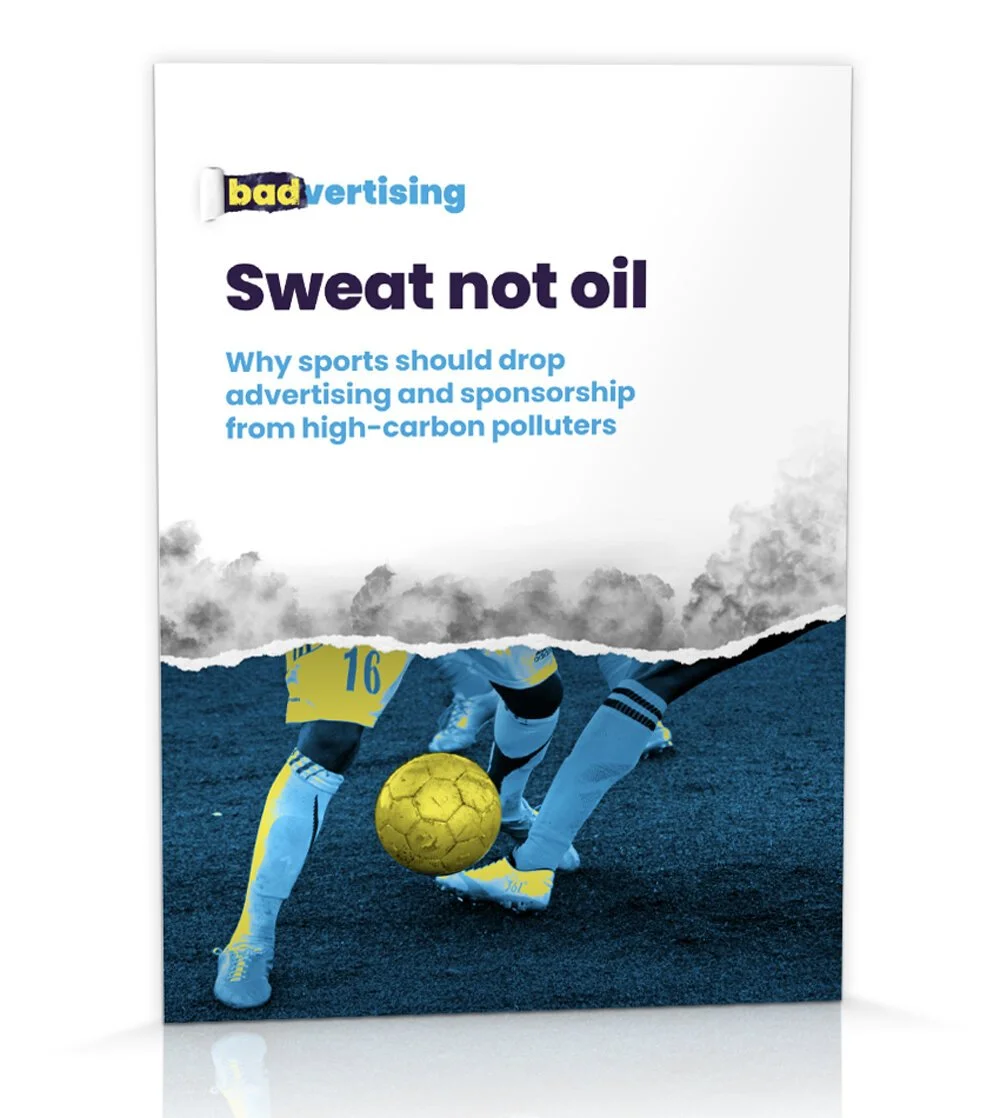Sweat not oil: why sports should drop advertising and sponsorship from high-carbon polluters
The promotion of high carbon products and services through sponsorship is a serious issue for the future of our climate. High carbon companies cannot expect to keep deliberately marketing products which are driving potentially runaway, catastrophic climate destabilisation without facing any public scrutiny.
Who are the sponsors?
The automotive industry is the most active high carbon industry courting sports sponsorship with 199 deals across different sports. Airlines come second with 63, followed by oil and gas companies such as Gazprom and Ineos, whose deals have already been criticised by climate campaigns.
Toyota was the largest sponsor by number, with a massive 31 sports deals with partners including the Olympics. The carmaker is closely followed by the airline Emirates with 29 partnerships - even giving their name to the iconic Arsenal football stadium.
Why does it matter?
Accepting huge sums of money from polluters directly contradicts the pledges many clubs and sports bodies have made to take action on climate change. With climate change increasingly seen as a health crisis and concerns over connected issues like air pollution on the rise, the report warns that sports bodies and individuals risk their credibility as promoters of public health.
There are strong parallels between these deals with major polluters and the now disgraced deals sports bodies used to have with the tobacco industry. Both involve the promotion of products and behaviours with the science well established about their known damaging effects on public health, and in the case of fossil fuels their contribution to the climate emergency.
What are we calling for?
Badvertising is calling for sports bodies around the world to end advertising and sponsorship deals from companies promoting high carbon lifestyles, products and services.
And leading figures within sport are on our team:
“As athletes, we focus a lot on keeping sport “clean” through prioritising anti-doping. Yet continuing to pollute in the face of the climate emergency is the Earth-equivalent of doping, or scoring own goals. By keeping polluting sponsors on board, sports detract from their opportunity to play a productive part in the race to zero carbon. It’s time for sports and athletes to change that.”
— Melissa Wilson, member of the GB Rowing Team and qualifier for the Tokyo Olympics.
“It’s wrong for these companies, who are fully aware of the deadly impact of their products, to use the power and beauty of sport to normalise and hide their behaviour. Sport has a unique power to connect and inspire people. I would like to see it use its voice to promote the idea of care and stewardship of our planetary resources, not insane exploitation and destruction.”
— Etienne Stott, Olympic Champion, London 2012 Olympics.

